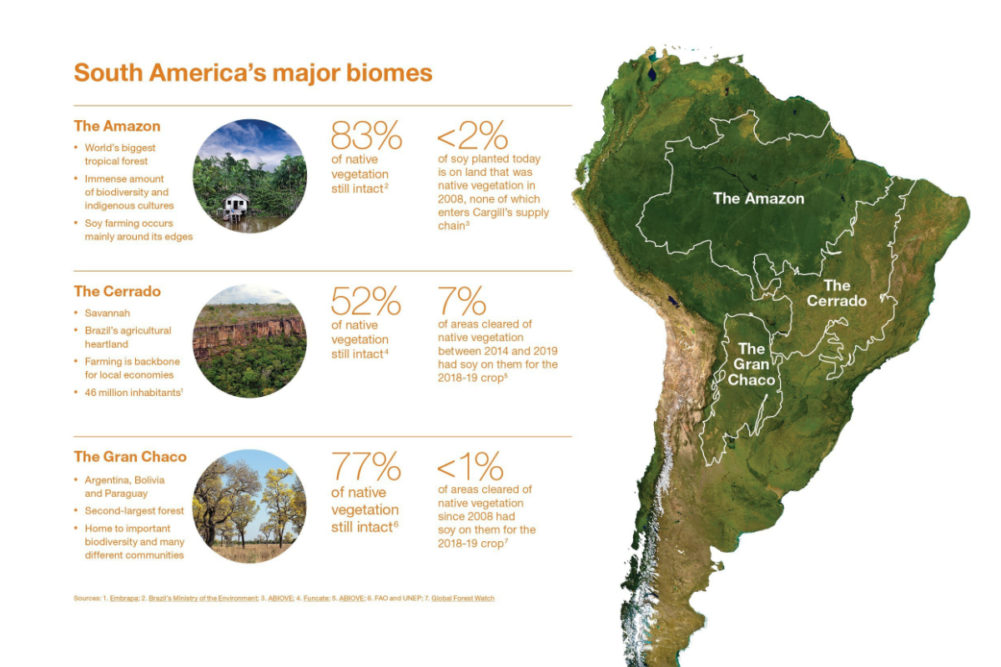WAYZATA, MINN.– Cargill released an update on the company’s progress toward building a deforestation-free soy supply chain.
"We haven't wavered in our commitment to protecting forests and native vegetation, and we believe this can be done in ways that are economically viable for farmers and local communities," said John Hartmann, global sustainability lead for Cargill's agricultural supply chain. "By working with farmers, customers, governments and others in the industry, we have made meaningful progress on our soy action plan and will continue efforts to make the soy supply chain more sustainable."
In the last six months, Cargill has met several critical milestones in protecting South American forests:
-
Cargill mapped 100% of its Brazilian supply chain with georeferenced single points that allow the company to identify the locations of its direct and indirect suppliers, a critical step toward effectively protecting forests and native vegetation.
-
Cargill calculated the estimated share of its soy in Brazil grown on land that is deforestation- and conversion-free, 95.7%, by analyzing data from external sources about both crop growth and changes in land use.
-
Cargill expanded its direct engagement with farmers in Brazil, including the launch of a new partnership with the largest farmer association in the state of Bahia.
-
Cargill continued to grow its Sustainably Sourced and Supplied certification program in Brazil and Paraguay, providing a large market for soybeans grown through verified sustainable methods. Farmers who commit to this program pledge to produce their crops by using the best agricultural practices, protecting worker welfare, and managing greenhouse gas emissions under a continuous improvement process.
Looking ahead the company plans to continue delivering on the following commitments:
-
Transforming its supply chain to be deforestation-free while protecting native vegetation beyond forests
-
Promoting responsible production, which benefits farmers and surrounding communities
-
Respecting and upholding the rights of workers, indigenous peoples and communities
-
Upholding the high standards of transparency through reporting of key metrics, progress and grievances

